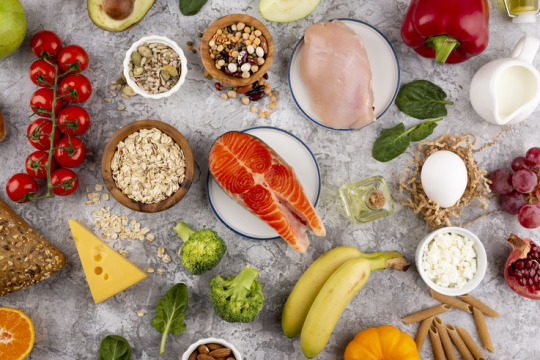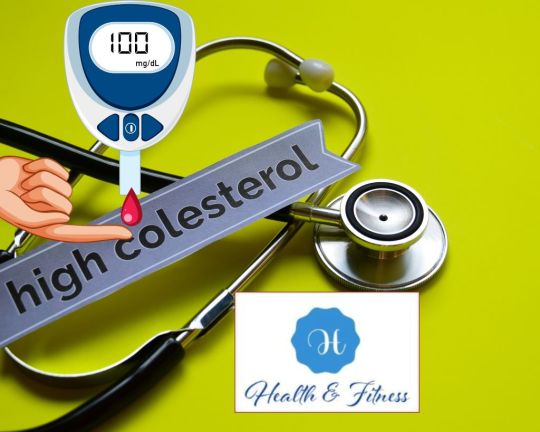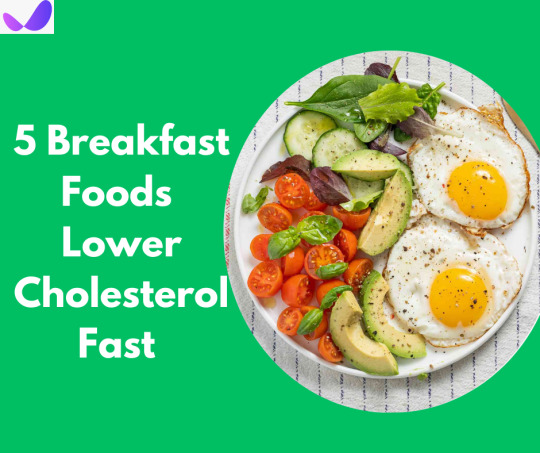#Cholesterol Lowering Foods
Text
The 10 Best Foods to Add to Your Diet to Lower Cholesterol

If you’re looking to lower your cholesterol and reduce your risk of heart disease, adding these 10 cholesterol-lowering foods to your diet is a great place to start. From legumes and avocados to fatty fish and dark chocolate, these foods can have a powerful effect on your cholesterol levels and overall heart health.
#Cholesterol Lowering Foods#Cholesterol Foods#Cholesterol Diet Tips#Cholesterol Diet Foods#Healthy Tips
0 notes
Text
https://nextfitlife.com/best-way-to-manage-high-cholesterol-and-diabetes/

#how to lower cholesterol#cholesterol#diabetes#how to reduce cholesterol#how to lower cholesterol naturally#high cholesterol#foods to lower cholesterol#how to lower cholesterol with diet#ldl cholesterol#cholesterol diet#lower cholesterol#how to lower your cholesterol#cholesterol and diabetes#cholesterol and diabetes recipes#diabetes and cholesterol#foods that lower cholesterol#how to control diabetes#cholesterol lowering foods#hdl cholesterol
0 notes
Link
#Cholesterol Lowering Foods#Shopping List Of Cholesterol Lowering Foods#List Of Cholesterol Lowering Foods#healthy lifestyle
0 notes
Text
What Are The Shopping List Of Cholesterol Lowering Foods?
What Are The Shopping List Of Cholesterol Lowering Foods?
Here we mentioned a list that will add to your shopping for consuming cholesterol-lowering foods, which will help your healthy lifestyle.
#loweringcholesterol #loweringcholesterolfoods #cholesterol #shopping #shoppinglist #lifestyle #healthylifestyle #health #beinghealthy #health #lowcholesterolfood
Excess cholesterol causes numerous problems. It is a risk factor for heart attack and stroke, a very serious threat to heart health. Hypercholesterolemia also affects many people. According to the study, half of the adult population in our country has high cholesterol. Diet is key to preventing it and reducing those excessive levels that cause so many vascular problems. In the following article,…

View On WordPress
#Cholesterol Lowering Foods#Cholesterol Lowering Foods Shopping List#Food Shopping List#Low Cholesterol Food List#Low Cholesterol Food Shopping List#Shopping List Of Low Cholesterol Foods
0 notes
Text
the western diet is so fucked up dude like i know how and why it got like this but man it is just so so so bad for you
#i didnt think i ate all that poorly#and then i was forced onto essentially a mediterranean diet to lower my sky-high cholesterol levels#and having to cut out full-fat dairy and red meat and eggs and fried foods and baked goods and coconut cream/milk etc#and having to look carefully over nutrition facts labels and just being flabbergasted by the numbers next to Sat Fat#i mean its just insane and most people dont even know or realize or think about it#cause its just such a typical usamerican diet and nutrition education here is dogshit#but ya gotta love capitalism and its endless pursuit of making things as tasty and addicting as possible for money#whether that means killing people or not
10 notes
·
View notes
Text
Don't mind me, just adding double cream and sugar to my healthy healthy cholesterol lowering Weetabix and oat bran mix. Adding 700+ calories of fats to my "healthy" meals is the ideal way to gain without feeling ill
#queer feedist#getting fat on purpose#life advice for sustainable gaining when you have a hightened risk of insulin resistance add fat to everything#if your cholesterol gets high simply eat more cholesterol lowering foods with the fats#genius
2 notes
·
View notes
Text
10 Ways to Lower Your Cholesterol
Here are 10 ways to lower your cholesterol;
1. Eat a heart-healthy diet: Focus on eating plenty of fruits, vegetables, whole grains, and lean proteins. Avoid foods that are high in saturated and trans fats.
2. Get regular exercise: Aim for at least 150 minutes of moderate-intensity exercise per week. This can include activities like brisk walking, cycling, or swimming.

3. Lose weight if you're overweight: Even a small weight loss can help lower your cholesterol.
4. Don't smoke or use tobacco products: Smoking can raise your LDL (bad) cholesterol and lower your HDL (good) cholesterol.
5. Limit your alcohol intake: Drinking too much alcohol can raise your triglycerides and LDL cholesterol.
6. Take cholesterol-lowering medications as prescribed: If your doctor has prescribed medication to lower your cholesterol, be sure to take it as directed.
7 Get your cholesterol checked regularly: It's important to have your cholesterol checked regularly so you can track your progress and make any necessary lifestyle changes.
8. Manage stress: Chronic stress can lead to unhealthy behaviors, such as overeating and not exercising, which can raise your cholesterol.
9. Get enough sleep: Lack of sleep can lead to weight gain and other health problems that can raise your cholesterol.
10. Consider adding plant sterols and stanols to your diet: These compounds, found in foods like nuts and seeds, can help lower your cholesterol levels.
It's important to note that everyone's cholesterol-lowering needs are different, and it's best to consult with a healthcare professional to determine the best course of action for you. MORE DETAILS
#cholesterol#health#cholesterol Diet#lower cholesterol#reducecholesterol#cholesterol exercise#cholesterol free food
1 note
·
View note
Photo

Cinnamon is all around good for your heart health. If you are someone looking to lower cholesterol, lower blood sugar, or lower blood pressure, True Vine CNMN is what you need. Studies have discovered that the cinnamaldehyde in cinnamon plays an important role in decreasing LDL cholesterol levels, triglycerides, and total cholesterol, all while increasing HDL cholesterol.
The antihyperglycemic properties in cinnamon lowers blood glucose levels by decreasing the amount of glucose that enters your bloodstream by interfering with your digestive enzymes. Yet another heart health benefit of cinnamon is that it reduces systolic and diastolic blood pressure due to its vasorelaxant property.
Our organic True Vine CNMN liquid dietary supplement is loaded with double the strength of Ceylon Cinnamon to ensure improvement in your heart health and overall quality of life. Try our natural health supplement today for a healthier heart tomorrow. Purchase yours at www.truevineorganics.net
Also, True Vine Organics introduce new product True Vine CNMN which manage cholesterol, sugar and BP. – Venusgeo and Devops (Medical Transcription Services)
#cardiovascular#cardiovascular disease#how to lower cholesterol naturally#how to lower cholesterol level#foods to lower cholesterol#cholesterol#cholesterol level#manage your cholesterol#how to rid your cholesterol#reduce your cholesterol naturally#lower cholesterol#ldl cholesterol#hdl cholesterol#cholesterol foods#get rid of bad cholesterol#cinnamon#liquid cinnamon#true vine cnmn#lowering cholesterol#cholesterol supplement#supplement to lower cholesterol
2 notes
·
View notes
Text
Exploring the Profound Benefits of a Vegan Diet

In recent years, the popularity of veganism has surged, driven by growing awareness of its numerous health, environmental, and ethical benefits. A vegan diet, which excludes all animal products, has been shown to offer a wide range of advantages for both individuals and the planet. From improving cardiovascular health to reducing greenhouse gas emissions, the benefits of adopting a vegan lifestyle extend far beyond the plate.
Improved Heart Health:
One of the most well-documented benefits of a vegan diet is its positive impact on heart health. Research consistently shows that plant-based diets are associated with lower risks of heart disease, stroke, and hypertension. By eliminating cholesterol-rich foods like meat, dairy, and eggs, and emphasizing nutrient-dense fruits, vegetables, whole grains, and legumes, vegans can significantly lower their levels of LDL cholesterol and blood pressure, reducing the risk of cardiovascular complications.
Lower Risk of Chronic Diseases:
In addition to heart disease, a vegan diet has been linked to a reduced risk of other chronic diseases, including type 2 diabetes, certain cancers, and obesity. Plant-based foods are rich in fiber, antioxidants, vitamins, and minerals, which play crucial roles in supporting overall health and immune function. By focusing on whole, unprocessed plant foods, vegans can help protect themselves against a host of preventable diseases and improve their long-term well-being.
Weight Management:
For those looking to manage their weight effectively, a vegan diet can be a valuable tool. Plant-based foods tend to be lower in calories and saturated fat compared to animal-derived products, making them ideal for weight loss and weight management. Additionally, the high fiber content of fruits, vegetables, and whole grains helps promote feelings of fullness and satiety, reducing the likelihood of overeating and aiding in weight control.
Environmental Sustainability:
Beyond personal health benefits, adopting a vegan diet also has significant environmental implications. Animal agriculture is a leading contributor to deforestation, habitat destruction, water pollution, and greenhouse gas emissions. By abstaining from animal products, vegans can significantly reduce their carbon footprint, conserve water resources, and mitigate the negative impacts of agriculture on biodiversity and ecosystems. Transitioning to a plant-based diet is one of the most effective actions individuals can take to combat climate change and promote environmental sustainability.
Ethical Considerations:
In addition to health and environmental reasons, many people choose to adopt a vegan lifestyle out of concern for animal welfare. The factory farming industry subjects billions of animals to unimaginable suffering, including confinement, mutilation, and slaughter. By abstaining from animal products, vegans align their dietary choices with their values of compassion, non-violence, and respect for all sentient beings. Choosing plant-based foods allows individuals to live in harmony with their ethical principles and contribute to a more humane and compassionate world.
Conclusion:
The benefits of a vegan diet extend far beyond personal health, encompassing environmental sustainability, animal welfare, and ethical considerations. By embracing a plant-based lifestyle, individuals can improve their cardiovascular health, reduce their risk of chronic diseases, manage their weight, and minimize their environmental impact. Furthermore, adopting a vegan diet offers an opportunity to align one's dietary choices with values of compassion, empathy, and respect for all living beings. As veganism continues to gain momentum worldwide, it represents a powerful force for positive change, both for individuals and the planet as a whole.
#In recent years#the popularity of veganism has surged#driven by growing awareness of its numerous health#environmental#and ethical benefits. A vegan diet#which excludes all animal products#has been shown to offer a wide range of advantages for both individuals and the planet. From improving cardiovascular health to reducing gr#the benefits of adopting a vegan lifestyle extend far beyond the plate.#Improved Heart Health:#One of the most well-documented benefits of a vegan diet is its positive impact on heart health. Research consistently shows that plant-bas#stroke#and hypertension. By eliminating cholesterol-rich foods like meat#dairy#and eggs#and emphasizing nutrient-dense fruits#vegetables#whole grains#and legumes#vegans can significantly lower their levels of LDL cholesterol and blood pressure#reducing the risk of cardiovascular complications.#Lower Risk of Chronic Diseases:#In addition to heart disease#a vegan diet has been linked to a reduced risk of other chronic diseases#including type 2 diabetes#certain cancers#and obesity. Plant-based foods are rich in fiber#antioxidants#vitamins#and minerals#which play crucial roles in supporting overall health and immune function. By focusing on whole
0 notes
Text
5 breakfast foods that lower cholesterol fast (2024)

#reduce cholesterol#breakfast foods lower cholesterol#fast cholesterol reduction food#healthy breakfast#cholesterol#healthcare#healthy eating#daily health updates#trending health topics
1 note
·
View note
Text
#foods that lower cholesterol#vegan#healthy diet#nutrition#best foods for cholesterol#cholesterol lowering food
0 notes
Text
#cholesterol levels#ldl cholesterol#ldl cholesterol levels#bad cholesterol#foods high in saturated#reduce cholesterol#cholesterol naturally#lowering cholesterol#hdl cholesterol#foods that lower cholesterol#foods high in saturated fat#reduce their cholesterol#reduce their cholesterol levels#total cholesterol#cholesterol lowering#cholesterol diet#cholesterol and triglycerides#cholesterol with diet#levels of ldl cholesterol#levels of ldl cholesterol and triglycerides#improve your cholesterol#cholesterol#healthy#heart#fats#eat#eating#exercise#fiber#vegetables
0 notes
Text
Tips for Having a Good Cholesterol Level
Millions of Americans struggle to control high cholesterol levels. Cholesterol is a waxy substance that your body needs to facilitate several biological functions. But too much of it can significantly increase your risk of heart disease.
Read our guide to lowering your cholesterol to make improvements and get healthy.
Improve Your Diet
A poor diet can create significant cholesterol issues. To reduce your cholesterol levels, you need to decrease your intake of foods that increase your cholesterol. The worst offenders are saturated fats and trans fats.
Saturated fats are prevalent in red meat and full-fat dairy products. They increase your low-density lipoprotein (LDL) cholesterol, the "bad" cholesterol.
Trans fats are in many processed foods like margarine, cookies, crackers, etc. They can raise your total cholesterol levels.
Avoid foods high in saturated and trans fats. Then, focus on increasing your intake of heart-healthy foods. Good examples include meals rich in Omega-3 fatty acids, soluble fiber and whey protein.
Get More Exercise
Staying active and physically fit is a fantastic way to lower cholesterol levels. Exercise increases high-density lipoprotein (HDL) cholesterol. That's the "good" cholesterol your body needs.
Aim to work out at least 30 minutes daily, five days a week. Aerobic exercises are great for lowering cholesterol levels.
Kick Unhealthy Habits
Unhealthy habits like smoking and excessive alcohol consumption can negatively impact heart health and increase cholesterol levels.
Quitting smoking can make a big difference. Cessation allows your HDL cholesterol levels to increase.
Moderate alcohol consumption is OK. But it's best to avoid too much of it. Excessive consumption can lead to serious health problems related to your blood pressure, heart and liver.
Speak with Your Doctor
Finally, work with your doctor to understand your cholesterol levels and long-term risks. Your doctor can look at your current cholesterol levels and help you develop a plan to see improvements. You'll likely hear them recommend an improved diet and more exercise in their guide to lowering your cholesterol.
However, doctors can also prescribe drugs like statins to help you see results. Understanding where you stand and making positive changes to reduce your health risks are the best ways to get in front of high cholesterol levels.
Discover clinically proven cholesterol lowering foods! Explore this website for insights on dietary choices that promote heart health and well-being.
#guide to statins#guide to lowering your cholesterol#common questions about cholesterol#clinically proven cholesterol lowering foods
0 notes
Text
Cholesterol Unveiled: The Hidden Role Of Stress And Gut Health In Your Heart's Story
Cholesterol, the fatty substance often demonized, is a crucial component of our bodies. It's essential for building cell membranes and hormones, but high cholesterol levels are linked to heart disease. While most of us are aware of the need to monitor our diet for high cholesterol foods, there's more to this intricate tale. Is stress a silent accomplice in the cholesterol drama, and what about the gut? This in-depth exploration reveals the often-underrated connection between stress, gut health, and cholesterol, and how they collectively shape the narrative of your heart's health.
#high cholesterol#high cholesterol foods#foods to avoid with high cholesterol#How to Lower Cholesterol Naturally#diet for high cholesterol#how to lower cholesterol#online consultation#online doctor consultation#online lab test
0 notes
Text
What Are The Gluten-Free Lowering Cholesterol Foods For Celiacs?
What Are The Gluten-Free Lowering Cholesterol Foods For Celiacs?
People who have untreated celiacs need to eat cholesterol lowering foods gluten-free because of being intolerant to gluten.
#gultenfree #gulten #loweringcholesterol #glutenfreeloweringcholesterolfoods #loweringcholesterolfoods #diet #foods #health #celiacdisease #celiacfoods
People who have untreated celiacs need to eat cholesterol lowering foods gluten-free because of being intolerant to gluten. Their intestine becomes inflamed and does not work properly, preventing nutrients from being absorbed properly, including fats. However, a celiac diet improves the state of the intestinal flora. It better assimilates all substances when there is a risk of high cholesterol.…

View On WordPress
#Cholesterol Lowering Foods#Gluten-Free Cholesterol Lowering Foods#Gluten-Free Foods#Low Cholesterol Gluten Free Foods#Lowering Cholesterol Foods For Celiacs
0 notes
Text
Cholesterol: a word that often brings to mind medical concerns and dietary precautions. But what exactly is cholesterol, and why does it matter? More importantly, how can we take control of it through our diet? In this comprehensive guide, we will explore 40 Foods to Lower Cholesterol, a journey that takes us into the heart of heart health.
#HDL cholesterol HDL cholesterol#atty fish fatty fish#cholesterol-lowering foods cholesterol lowering#risk of heart disease risk of heart disease#heart health heart health
1 note
·
View note